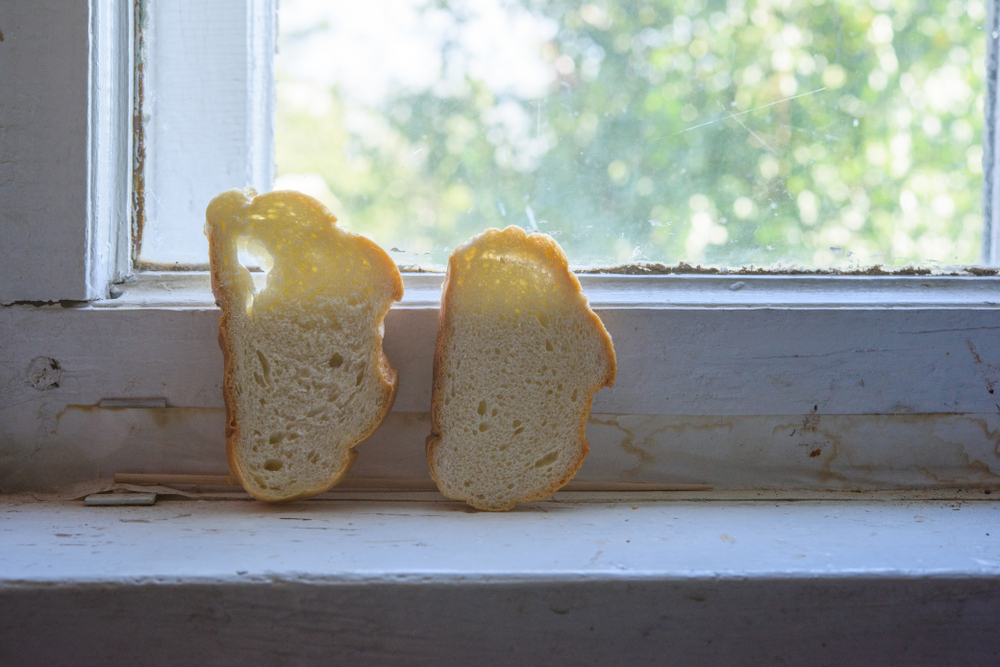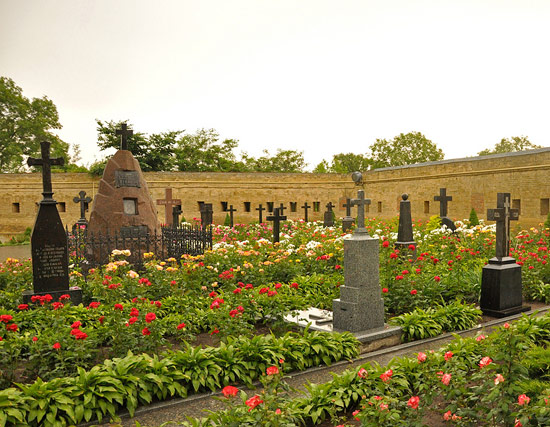Customs and Ceremonies
For Ukrainians, death is an occasion for a social gathering, particularly in rural areas, where large numbers of relatives and friends usually attend funerals. Funerals are conducted with reverence, and the family performs a few ceremonies to ensure that the soul of the deceased rests in peace.
In rural areas, a person’s death was made known to the entire community by hanging white handkerchiefs or peremitka (a white scarf or hood traditionally worn by married women) from the windows of the deceased’s house. Among highlanders, the traditional custom was to make a bonfire before the home of the deceased and blow the trembita (tube-shaped folk musical instrument).
Before the burial, the family holds a prayer service at their home in the evening, with close friends and relatives in attendance. The funeral service takes place at the local church the following day. In accordance with traditional practice, the casket is sealed and lowered into a grave. During the ceremony, the mourners chant songs while the priest makes the sign of the cross over the grave with a spade. At the end of the ceremony, everyone present throws a handful of soil into the grave.
After the burial, the family of the deceased hosts a traditional meal consisting of kolyvo (a wheat dish cooked with honey). After the meal, the customary practice was to place a glass of horilka and a piece of bread on the windowsill, in the belief that the spirit of the deceased would return home sometime during the next nine days. The next day, the family prepares lunch and takes it to the grave of the deceased, an act that officially marks the end of the funeral and the beginning of commemoration.
The Afterlife
Ukrainians celebrate death anniversaries in accordance with the belief that the soul departs from the body on the third day after death, the spirit returns home on the ninth day, and the body completely ceases to exist on the fortieth day. The family, therefore, holds services and hosts a meal on the ninth and fortieth days, and also at six and 12 months after the burial. The annual Remembrance Day (provody) in Ukraine traditionally falls on the Sunday following Easter and is the time when families visit the graves of their relatives and pray for the departed souls.
The majority of Ukrainians hold to the Christian view of death and the afterlife, in which the soul lives on for eternity and death is the mere destruction of the physical body. They believe that the dead will be raised on the Day of Judgment, when God will judge them on their faith and deeds. The righteous and those found worthy of God’s love will be sent to Heaven, while sinners will be thrown into the eternal torment of Hell.
Copyright © 1993-2024 World Trade Press. All rights reserved.




